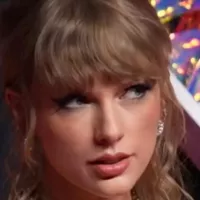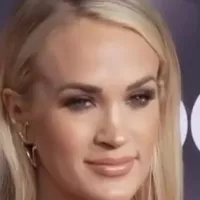2002: Osama bin Laden's letter to the American people
In 2002, Osama bin Laden wrote the "Letter to the American people", denouncing the U.S. and its support for Israel, and supported al-Qaeda's war against the U.S. as a defensive struggle. It resurfaced and went viral in November 2023.
2010: TikTok Cited as 7th-Most-Downloaded Mobile App of the Decade
In 2019, media outlets cited TikTok as the 7th-most-downloaded mobile app of the decade, from 2010 to 2019, showcasing its impact on the mobile app landscape.
August 2014: Musical.ly Initially Released
In August 2014, Musical.ly was initially released as a social media video platform for creating short lip-sync and comedy videos, later to be acquired by ByteDance.
September 20, 2016: Douyin (A.me) Launched by ByteDance
On September 20, 2016, ByteDance launched Douyin, initially under the name A.me, marking the beginning of what would become TikTok's Chinese counterpart.
December 2016: A.me Rebrands to Douyin (抖音)
In December 2016, A.me rebranded to Douyin (抖音), marking a significant step in the development of the popular Chinese video-sharing platform.
2016: Fitz and the Tantrums Gained Popularity in South Korea
In 2016, the band Fitz and the Tantrums developed a large following in South Korea due to the widespread popularity of their song "HandClap" on the TikTok platform.
September 2017: TikTok Launched in the International Market
In September 2017, ByteDance launched TikTok in the international market, creating an overseas version of Douyin to expand its global presence.
November 2017: ByteDance Purchases Musical.ly
On November 9, 2017, ByteDance acquired Musical.ly for nearly $1 billion, signaling a strategic move to strengthen its position in the social media video platform market.
2017: CFIUS Investigates TikTok's Merger with Musical.ly
Since 2020, following calls to ban TikTok in the country, the Committee on Foreign Investment in the United States (CFIUS) has been investigating the company's 2017 merger with Musical.ly, but has not finalized any negotiations.
January 2018: TikTok Ranked First Among Free Application Downloads
On January 23, 2018, the TikTok app ranked first among free application downloads on app stores in Thailand and other countries, showcasing its increasing popularity.
April 2018: Addiction-reduction feature added to Douyin
In April 2018, an addiction-reduction feature was added to Douyin, encouraging users to take a break every 90 minutes. Later in 2018, the feature was rolled out to the TikTok app.
August 2018: TikTok Merged with Musical.ly
On August 2, 2018, TikTok merged with Musical.ly, consolidating existing accounts and data into one app under the TikTok name, enhancing its user base and content.
October 2018: TikTok Becomes Most Downloaded App in the U.S.
In October 2018, after merging with Musical.ly in August, downloads increased and TikTok became the most downloaded app in the U.S., a feat musical.ly had achieved once before.
2018: Celebrities Begin Using TikTok
In 2018, Jimmy Fallon, Tony Hawk, and other celebrities began using the TikTok app in the United States, increasing the app's popularity and visibility.
2018: TikTok's Privacy Settings and Concerns
In 2018, TikTok had only two privacy settings: private or completely public. Comment sections of "sexy" videos, such as young girls dancing in revealing clothes, were found to contain requests for nude pictures.
2018: Vox notes relative rarity of bullies and trolls on TikTok
In 2018, Vox noted that bullies and trolls were relatively rare on TikTok compared to other platforms, but users still reported cyberbullying.
2018: Alleged Access of Hong Kong user data by CCP members
In 2018, according to a lawsuit filed in May 2023, Chinese Communist Party members allegedly accessed Hong Kong users' device information and communications, particularly of demonstrators in the 2019-2020 Hong Kong protests.
2018: ByteDance Introduces Parental Controls and "Teenage Mode"
In 2018, under government pressure, ByteDance introduced parental controls and a "teenage mode" on Douyin that shows only whitelisted content and bans pranks, superstition, dance clubs, and pro-LGBT content. A mandatory screen time limit was put in place for users under the age of 14, and accounts were required to link to a real identity.
January 2019: TikTok Allows Merchandise Sale Links
In January 2019, TikTok enabled creators to embed merchandise sale links into their videos, providing a new avenue for monetization and e-commerce.
February 2019: TikTok and Douyin Hit One Billion Downloads Globally
In February 2019, TikTok, along with Douyin, reached one billion downloads globally, excluding Android installs in China, marking a significant milestone in user acquisition.
February 2019: UK's ICO launches investigation of TikTok
In February 2019, the United Kingdom's Information Commissioner's Office (ICO) launched an investigation of TikTok following the fine ByteDance received from the United States Federal Trade Commission (FTC).
February 2019: FTC fines ByteDance for COPPA violations
On 27 February 2019, the United States Federal Trade Commission (FTC) reached a consent decree with ByteDance, fining it U.S.$5.7 million for collecting information from minors under the age of 13 in violation of the Children's Online Privacy Protection Act (COPPA).
May 2019: Chipotle Partners with David Dobrik
In May 2019, Chipotle partnered with David Dobrik for a branded content campaign on TikTok.
August 2019: Dilraba Dilmurat, Angelababy, Luo Zhixiang, Ouyang Nana, and Pan Changjiang Gained Large Following on Douyin
As of August 2019, Dilraba Dilmurat, Angelababy, Luo Zhixiang, Ouyang Nana, and Pan Changjiang, were some of the celebrities who had garnered large followings on Douyin, the Chinese version of TikTok.
September 2019: TikTok and NFL Announce Partnership
On September 3, 2019, TikTok and the U.S. National Football League (NFL) announced a multi-year partnership, including an official NFL TikTok account and new marketing opportunities, enhancing TikTok's reach and engagement.
October 2019: TikTok removes accounts posting ISIL propaganda
In October 2019, TikTok removed about two dozen accounts responsible for posting ISIL propaganda and execution videos on the app.
December 2019: TikTok admits suppressing videos by disabled and LGBTQ+ users
In December 2019, following a report by German digital rights group netzpolitik.org, TikTok admitted that it had suppressed videos by disabled users as well as LGBTQ+ users in a purported temporary effort to limit cyberbullying.
2019: TikTok censored videos on topics not favored by Chinese government
In 2019, The Guardian reported that TikTok had censored videos of topics not favored by the Chinese government. That year, TikTok took down a video about human rights abuses in the Xinjiang internment camps against Uyghurs but restored it after 50 minutes as well as the creator's account, saying that the action was a mistake and triggered by a brief "satirical" image of Osama bin Laden in another post. Other human rights activists have also said that their TikTok videos discussing human rights violations of the Uyghurs have been taken down.
2019: TikTok Announces #EduTok Mentorship Program
In 2019, TikTok announced the #EduTok Mentorship program, a live workshop series in the Indian states of Bihar, Andhra Pradesh, Telangana, Rajasthan, Jharkhand and Jammu inspired by the hashtag #EduTok, in which video creators present factually for purposes of education.
2019: TikTok Helped Make "Old Town Road" a Hit
In 2019, TikTok played a major role in making "Old Town Road" by Lil Nas X one of the biggest songs of the year and the longest-running number-one song in the history of the U.S. Billboard Hot 100.
2019: Hong Kong Protests
In 2019, demonstrators participated in Hong Kong protests, that according to a lawsuit filed in May 2023, became a focus for alleged Chinese Communist Party member data access.
January 2020: Check Point Research discovers TikTok vulnerability
In January 2020, Check Point Research discovered a vulnerability in TikTok, allowing hackers to spoof official SMS messages to gain access to user accounts. TikTok later patched the vulnerability.
January 2020: TikTok hosts misinformation related to the COVID-19 pandemic
In January 2020, Media Matters for America reported that TikTok hosted misinformation related to the COVID-19 pandemic, despite a recent policy against misinformation.
January 2020: U.S. Army and Navy ban TikTok on government devices
In January 2020, the United States Army and Navy banned TikTok on government devices after the Defense Department labeled it a security risk.
February 2020: TikTok Announces Family Safety Mode
In February 2020, TikTok announced a "family safety mode" to allow parents to control their children's presence on the app, including screen time management and restricted mode.
March 2020: Charli D'Amelio Surpassed Loren Gray as Most-Followed on TikTok
On March 25, 2020, Charli D'Amelio surpassed Loren Gray as the most-followed individual on TikTok, reaching over 41.3 million followers.
April 2020: TikTok Surpasses Two Billion Mobile Downloads
In April 2020, TikTok achieved a significant milestone by surpassing two billion mobile downloads worldwide, marking its growing global popularity.
April 2020: Government of India asks TikTok to remove misinformation related to the COVID-19 pandemic
In April 2020, the government of India asked TikTok to remove users posting misinformation related to the COVID-19 pandemic. There were also multiple conspiracy theories that the government is involved with the spread of the pandemic.
May 2020: Complaint filed with FTC alleging violation of consent decree
In May 2020, an advocacy group filed a complaint with the FTC stating that TikTok had violated the terms of the February 2019 consent decree with the FTC, which sparked subsequent congressional calls for a renewed FTC investigation.
June 2020: Conspiracy theories spread on TikTok
By June 2020, conspiracy theories like Pizzagate and QAnon were popular on TikTok, reaching almost 80 million and 50 million views respectively. The platform has also been used to spread misinformation about the COVID-19 pandemic. TikTok removed some videos and added links to accurate COVID-19 information on relevant videos.
June 2020: TikTok Users and K-Pop Fans Impacted Trump Rally
In June 2020, TikTok users and K-pop fans claimed to have registered potentially hundreds of thousands of tickets for President Trump's campaign rally in Tulsa, Oklahoma, contributing to "rows of empty seats" at the event.
July 2020: TikTok Reports Close to 800 Million Monthly Active Users
In July 2020, TikTok, excluding Douyin, reported close to 800 million monthly active users worldwide, demonstrating rapid growth in less than four years.
August 2020: "Ode to Remy" Sparked "Ratatouille the Musical" Project
In August 2020, Emily Jacobssen's "Ode to Remy" rose to popularity after Daniel Mertzlufft composed a backing track, sparking a "crowdsourced" project called Ratatouille the Musical.
August 2020: Report on TikTok tracking Android user data
In August 2020, The Wall Street Journal reported that TikTok tracked Android user data, including MAC addresses and IMEIs, using a tactic violating Google's policies.
August 2020: Trump orders ban on TikTok transactions
On 6 August 2020, U.S. President Donald Trump signed an order which would ban TikTok transactions in 45 days if it was not sold by ByteDance. On 14 August 2020, Trump issued another order giving ByteDance 90 days to sell or spin off its U.S. TikTok business.
August 2020: Kevin A. Mayer Resigns as CEO
On August 27, 2020, Kevin A. Mayer resigned from his position as CEO of TikTok, leading to a period of interim leadership.
September 2020: Dunkin' Donuts Partners with Charli D'Amelio
In September 2020, Dunkin' Donuts partnered with Charli D'Amelio for a branded content campaign on TikTok.
September 2020: TikTok Expands Parental Controls with Family Pairing Feature
In September 2020, TikTok expanded its parental controls feature called "Family Pairing" to provide parents and guardians with educational resources, created in partnership with Internet Matters, to understand children's exposure on TikTok.
September 2020: ByteDance and Oracle Confirm Cloud Hosting Deal
In September 2020, a deal was confirmed between ByteDance and Oracle, in which Oracle will serve as a partner to provide cloud hosting for TikTok.
October 2020: TikTok for Biden Organization Created
In October 2020, an organization called TikTok for Biden was created to support then-presidential candidate Joe Biden. After the election, the organization was renamed to Gen-Z for Change.
October 2020: Shopify Adds TikTok to Its Portfolio
In October 2020, the e-commerce platform Shopify added TikTok to its portfolio of social media platforms, allowing online merchants to sell their products directly to consumers on TikTok.
November 2020: TikTok Signs Licensing Deal with Sony Music
In November 2020, TikTok signed a licensing deal with Sony Music, enhancing its music library and content offerings.
December 2020: Warner Music Group Signs Licensing Deal with TikTok
In December 2020, Warner Music Group signed a licensing deal with TikTok, further expanding TikTok's music content and partnership portfolio.
2020: CIA report on TikTok user data
According to a 2020 article in The New York Times, Central Intelligence Agency analysts determined that while it is possible the Chinese government could obtain user information from the app, there was no evidence it had done so.
2020: TikTok Pulled Out of Hong Kong
In 2020, ByteDance claimed that TikTok was pulled out of Hong Kong, in response to allegations of data breaches in the region, which surfaced from a lawsuit in May 2023.
2020: Charli D'Amelio Made a #NoseJobCheck Video
In 2020, Charli D'Amelio, the most-followed person on TikTok at the time, made a #NoseJobCheck video to show the results of her surgery to repair a broken nose.
2020: Fleetwood Mac's "Dreams" Re-entered Billboard Hot 100
In 2020, Fleetwood Mac's "Dreams" was used in a skating video and recreation by Mick Fleetwood. The song re-entered the Billboard Hot 100 after 43 years and topped Apple Music.
2020: The New York Times Recognizes TikTok's Algorithm
In 2020, The New York Times recognized TikTok's algorithm as one of the most advanced for shaping user experiences and social interactions, setting it apart from other social media platforms.
2020: TikTok Food Trends Emerged During the COVID-19 Pandemic
In 2020, TikTok food trends gained popularity during the COVID-19 pandemic, as people spent more time cooking at home and engaging with social media.
2020: TikTok Bans Content Promoting "Premium Sexual Content"
In 2020, TikTok updated their terms of service to ban content that promotes "premium sexual content", impacting a large number of adult content creators.
2020: TikTok election misinformation removal
In the second half of 2020, TikTok reported that over 340,000 videos in the U.S. about election misinformation and 50,000 videos of COVID-19 misinformation were removed.
2020: CFIUS Investigates TikTok's Merger with Musical.ly
Since 2020, following calls to ban TikTok in the country, the Committee on Foreign Investment in the United States (CFIUS) has been investigating the company's 2017 merger with Musical.ly, but has not finalized any negotiations.
January 2021: #NoseJobCheck Trend Went Viral on TikTok
By January 2021, the #nosejob hashtag accumulated 1.6 billion views, #nosejobcheck had 1 billion views, and the audio in the #NoseJobCheck trend was used in 120,000 videos.
January 2021: Winter campaign with the United Arab Emirates Government Media Office
In January 2021, TikTok collaborated with the United Arab Emirates Government Media Office on a winter campaign.
January 2021: Italian Data Protection Authority Demands Suspension of Users
In January 2021, the Italian Data Protection Authority demanded that TikTok temporarily suspend Italian users whose age could not be established after the death of a 10-year-old Sicilian girl involved in an Internet challenge.
January 2021: Virtual Presentation of Ratatouille the Musical Premiered
On January 1, 2021, a full one-hour virtual presentation of Ratatouille the Musical premiered on TodayTix, starring Titus Burgess, Wayne Brady, Adam Lambert, and others.
February 2021: Stats About Plastic Surgeons on TikTok Published
An article published in December 2021 referenced stats about the most popular plastic surgeons on TikTok up to February 2021, and at the time, five plastic surgeons had surpassed 1 million followers.
March 2021: Citizen Lab Study Finds TikTok Data Collection Within Industry Norms
A March 2021 study by the Citizen Lab found that TikTok did not collect data beyond the industry norms, what its policy stated, or without additional user permission.
March 2021: Citizen Lab study on TikTok censorship
In March 2021, a study by the Citizen Lab found that TikTok did not censor searches politically but was inconclusive about whether posts are censored.
April 2021: Abu Dhabi partners with TikTok to promote tourism
In April 2021, the Abu Dhabi Department of Culture and Tourism partnered with TikTok to promote tourism for the city.
May 2021: Shou Zi Chew Appointed as TikTok CEO
In May 2021, TikTok appointed Shou Zi Chew as their new CEO, succeeding interim CEO Vanessa Pappas, marking a new phase in the company's leadership.
June 2021: TikTok apologizes after graphic beheading video goes viral
In June 2021, TikTok apologized after a shock video, showing a girl dancing which then cuts to a graphic scene of a man being beheaded by a saw, went viral. The video has now been sent to TikTok's blacklist, which automatically detects it before being uploaded.
June 2021: TikTok Updates Privacy Policy to Include Biometric Data Collection
In June 2021, TikTok updated its privacy policy to include potential collection of biometric data, including "faceprints and voiceprints", for special effects and other purposes.
June 2021: Biden revokes Trump administration ban on TikTok
In June 2021, U.S. President Joe Biden signed an executive order revoking the Trump administration ban on TikTok and ordered an investigation to determine if it poses a threat to U.S. national security.
July 2021: TikTok Fined by Dutch Data Protection Authority and Raises Minimum Age for Livestreaming
In July 2021, the Dutch Data Protection Authority fined TikTok €750,000 for offering privacy statements only in English but not in Dutch. Also, TikTok raised the minimum age for livestreaming from 16 to 18 after a BBC News investigation found hundreds of accounts going live from Syrian refugee camps.
September 2021: TikTok Reaches 1 Billion Users
In September 2021, TikTok reported that it had reached 1 billion users, a significant milestone demonstrating its expansive global reach.
September 2021: Ireland DPC launches investigations into TikTok
In September 2021, the Ireland Data Protection Commission (DPC) launched investigations into TikTok concerning the protection of minors' data and transfers of personal data to China.
October 2021: TikTok Launched Tipping Feature
In October 2021, TikTok launched a test feature that allowed users to directly tip certain creators. Accounts with over 100,000 followers could activate a "Tip" button on their profile.
October 2021: US Lawmakers Press TikTok on Data Privacy and Moderation
In October 2021, a bipartisan group of United States lawmakers pressed TikTok, YouTube, and Snapchat on questions of data privacy and moderation for age-appropriate content.
December 2021: Article Published About Plastic Surgeons on TikTok
In December 2021, Plastic and Reconstructive Surgery published an article about the popularity of plastic surgeons on TikTok, noting their early adoption of social media and influencer status.
December 2021: TikTok Beta-Tested Live Studio
In December 2021, TikTok started beta-testing Live Studio, a streaming software for broadcasting applications open on computers, including games, with support for mobile and PC streaming. It was later discovered to use code from OBS Studio.
2021: TikTok Ranked Most Popular Website of 2021
In 2021, Cloudflare ranked TikTok as the most popular website, surpassing Google, indicating TikTok's dominance in online traffic and user engagement.
2021: Snapchat Pays Out to Creators
In 2021, Snapchat paid out $250 million to its creators, reflecting the growing competition for content creators driven by platforms like TikTok.
2021: TikTok's BookTok Drives Sales of Literature
In 2021, The New York Times reported that viral TikTok videos by young people relating the emotional impact of books on them, tagged with the label "BookTok", significantly drove sales of literature. Publishers were increasingly using the platform as a venue for influencer marketing.
2021: The Wall Street Journal Highlights TikTok's Superiority in User Understanding
In 2021, The Wall Street Journal highlighted TikTok's superiority over other social media platforms in understanding users' preferences and emotions, contributing to its addictive nature.
2021: Confidential negotiations for Project Texas begin
In 2021, TikTok engaged in confidential negotiations with CFIUS over Project Texas, aimed at securing privileged user data within the United States, but received little response after submitting its proposal.
2021: TikTok to prevent teenagers from receiving notifications past their bedtime
In 2021, TikTok revealed it would introduce a feature preventing teenagers from receiving notifications past their bedtime, with push notifications ceasing after 9 pm for users aged 13-15 and after 10 pm for those aged 16-17.
2021: Reports of users being shown similar videos about suicide, self-harm, or eating disorders
In 2021, it was reported that accounts engaging with content related to suicide, self-harm, or eating disorders were shown more similar videos. The company said it is working to break up these "rabbit holes" of similar recommendations.
2021: "Kia Challenge" Involves Users Stealing Kia and Hyundai Cars
In 2021, the "Kia Challenge" trend on TikTok involved users stealing certain models of Kia and Hyundai cars manufactured without immobilizers between 2010 and 2021.
2021: IDF Recruits Influencers
In 2021, the Israeli Defense Force actively recruited influencers on TikTok and other social media platforms.
2021: TikTok Creates Election Centers
Since 2021, TikTok has created "election centres" on its platform leading up to European Parliament elections.
February 2022: Texas Attorney General investigates TikTok
In February 2022, Texas Attorney General Ken Paxton initiated an investigation into TikTok for alleged violations of children's privacy and facilitation of human trafficking.
February 2022: Report on effects on teen girls of sexualized TikTok videos
In February 2022, The Wall Street Journal reported concerns from mental-health professionals regarding the impact of sexualized TikTok videos on teen girls.
March 2022: Meta Platforms Pays Targeted Victory to Campaign Against TikTok
In March 2022, The Washington Post reported that Facebook's owner Meta Platforms paid Targeted Victory to coordinate lobbying and media campaigns against TikTok, portraying it as a danger to American children and society.
March 2022: Investigation into TikTok's effect on children's mental health
In March 2022, a coalition of U.S. state attorneys general launched an investigation into TikTok's effect on children's mental health.
March 2022: TikTok settles class action lawsuit for COPPA violations
In March 2022, following a class action lawsuit for violations of COPPA, TikTok settled for US$1.1 million.
March 2022: TikTok restricts content in Russia due to censorship laws
In March 2022, following the installation of new Russian war censorship laws, TikTok announced restrictions on Russian and non-Russian posts and livestreams. Tracking Exposed reported that a technical glitch exploited by pro-Russia posters contributed to a "splInternet ... dominated by pro-war content" in Russia. TikTok stated it had removed accounts swaying public opinion and videos violating misinformation policies.
April 2022: NBC News Reported Influencers Receiving Discounted Cosmetic Surgeries
In April 2022, NBC News reported that surgeons were giving influencers discounted or free cosmetic surgeries to advertise the procedures to their audiences on TikTok.
May 2022: TikTok Announced Ad Revenue-Sharing Program
In May 2022, TikTok announced TikTok Pulse, an ad revenue-sharing program covering the top 4% of videos, available to creators with over 100,000 followers, who would receive 50% of ad revenue from their videos.
June 2022: FCC Commissioner calls for TikTok removal from app stores
In June 2022, FCC Commissioner Brendan Carr urged Google and Apple to remove TikTok from their app stores, citing concerns about sensitive data access from Beijing and ByteDance's potential compliance with Chinese government surveillance.
June 2022: Influencers Paid by FeetFinder Fail to Disclose Ads
In June 2022, NBC News reported that some of the influencers paid by FeetFinder, a website that sells foot fetish content, did not disclose their videos were ads.
June 2022: TikTok introduces screen time allowance
In June 2022, TikTok introduced a feature that allows users to set a maximum uninterrupted screen time, which blocks the app after the allowance is reached. A dashboard was also added to provide statistics on app usage.
June 2022: Khaby Lame Surpassed Charli D'Amelio as Most-Followed on TikTok
On June 23, 2022, Khaby Lame surpassed Charli D'Amelio as the most-followed individual on the TikTok platform.
August 2022: Keylogger Functionality Found in TikTok's In-App Browser
In August 2022, software engineer and security researcher Felix Krause found that in-app browsers from TikTok contained codes for keylogger functionality, but further investigation was needed to determine if data was tracked or recorded. TikTok claimed the code was disabled.
September 2022: NewsGuard Technologies reports misinformation surfaced on TikTok
In September 2022, NewsGuard Technologies reported that among the TikTok searches it had conducted and analyzed from the U.S., 19.4% surfaced misinformation such as questionable or harmful content about COVID-19 vaccines, homemade remedies, the 2020 U.S. elections, the Russian invasion of Ukraine, the Robb Elementary School shooting, and abortion. NewsGuard suggested that in contrast, results from Google were of higher quality.
October 2022: Forbes reports ByteDance planned to surveil U.S. citizens
In October 2022, Forbes reported that a team at ByteDance planned to surveil certain U.S. citizens for undisclosed reasons. TikTok denied that precise GPS information is collected.
October 2022: TikTok Plans Expansion into US E-commerce Market
In October 2022, TikTok was reported to be planning an expansion into the e-commerce market in the US, following the launch of TikTok Shop in the United Kingdom, with job listings posted for order fulfillment centers.
November 2022: Australia reports a shortage of Ozempic
In November 2022, Australia's Therapeutic Goods Administration (TGA) reported a global shortage of the diabetes medication Ozempic, attributed to an increase in off-label prescriptions for weight loss.
November 2022: FBI Director warns of potential Chinese influence operations via TikTok
In November 2022, FBI Director Christopher A. Wray stated that the Chinese government could potentially utilize TikTok for influence operations targeting its users.
November 2022: TikTok States Employees from China and Other Countries Could Gain Remote Access
In a November 2022 update to its European privacy policy, TikTok stated that its global corporate group employees from China and other countries could gain remote access to the user information of accounts from Europe based on "demonstrated need".
December 2022: ByteDance confirms data access of journalists
In December 2022, ByteDance confirmed after internal investigation that the data of two journalists and their close contacts had been accessed by its employees from China and the United States to uncover sources of leaks. ByteDance stated that it fired four employees in response.
December 2022: Cosmetic Surgeries Advertised by Influencers
In December 2022, NBC News reported that some TikTok and YouTube influencers were being given free and discounted cosmetic surgeries in order for them to advertise the surgeries to users of the platforms.
December 2022: Buccal Fat Removal Trended on TikTok
In December 2022, it was reported that a cosmetic surgery procedure known as buccal fat removal was going viral on the TikTok platform, with videos using related hashtags amassing over 180 million views.
December 2022: US House of Representatives and President Biden ban TikTok on government devices
In December 2022, the Chief Administrative Officer of the United States House of Representatives banned TikTok from all devices managed by the House of Representatives. President Joe Biden signed the No TikTok on Government Devices Act, prohibiting the use of the app on devices owned by the federal government.
December 2022: TikTok weight loss trend causes Ozempic shortage in the U.S.
In December 2022, the United States was experiencing a shortage of Ozempic caused by a weight loss trend on TikTok. Wegovy also became popular after Elon Musk credited it for helping him lose weight.
2022: TikTok used for hate speech in Malaysia
After the 2022 election in Malaysia, TikTok was used by some users to engage in hate speech against race and religion, especially mentioning the 13 May incident. TikTok responded by taking down videos violating their community guidelines.
2022: TikTok user data in the United States and the UK
As of the first quarter of 2022, there were over 100 million monthly active users in the United States and 23 million in the UK. The average user, daily, was spending 1 hour and 25 minutes on the app and opening TikTok 17 times.
2022: TikTok Released a Showbiz List Highlighting Individuals Impacting the Film Industry
By 2022, TikTok released a Showbiz List, highlighting individuals who were having a larger impact on the film industry.
2022: Kate Bush's "Running Up That Hill" Went Viral
In 2022, Kate Bush's "Running Up That Hill" went viral among fans of Stranger Things, topping the UK singles chart 37 years after its original release.
2022: TikTok Bans Fundraising for Political Accounts
In 2022, TikTok banned fundraising for political accounts.
2022: Former employee leaves before project specifications finalized
In 2022, TikTok responded to criticism of Project Texas in March 2023 by saying that the former employee who criticized it had left the company before project specifications were finalized.
2022: Turkey investigates TikTok for money laundering
In 2022, Turkey's Financial Crimes Investigation Board (MASAK) initiated a probe into TikTok in relation to millions of dollars in fund transfers involving TikTok accounts that were suspected of money laundering or terrorism financing.
2022: Propaganda arm reportedly targeted candidates during the United States elections
In 2022, according to a 2024 unclassified threat assessment by the Director of National Intelligence, "TikTok accounts run by a [Chinese] propaganda arm reportedly targeted candidates" during the United States elections.
2022: Biden Administration Briefs TikTokers on News Items
Since 2022, the Biden administration had briefed TikTokers on news items such as the Russian invasion of Ukraine and student debt relief in America.
2022: Awareness of child exploitation on TikTok
Since at least 2022, TikTok has been aware of child exploitation on the platform, with an investigation in 2025 revealing that the company profits from sexual livestreams involving minors in Kenya.
January 2023: TikTok "heating" tool reported by Forbes
In January 2023, Forbes reported that TikTok has a "heating" tool used to manually promote videos, accounting for 1–2% of daily views. This practice, initially intended to diversify content and influencers, has been abused by some employees to promote personal accounts, leading to concerns about discretion. TikTok stated that only a few U.S. individuals can approve heating and that promoted videos make up less than 0.002% of user feeds. Discussions with CFIUS aim to restrict future heating to vetted U.S. personnel audited by third parties like Oracle.
February 2023: States ban TikTok on government devices
As of February 2023, at least 32 states have announced or enacted bans on state government agencies, employees, and contractors using TikTok on government-issued devices.
February 2023: NHTSA Reported Crashes and Deaths Due to Kia Challenge
As of February 2023, the "Kia Challenge" trend resulted in at least 14 crashes and eight deaths according to the National Highway Traffic Safety Administration.
February 2023: Calls to block TikTok for promoting violence
In February 2023, Otzma Yehudit politician Almog Cohen advocated blocking TikTok for all of East Jerusalem, with U.S. lawmakers also accusing the platform of pushing pro-Hamas and pro-Palestine content.
February 2023: European Union bans TikTok on staff devices
In February 2023, the European Parliament, the European Commission, and the Council of the European Union banned TikTok on staff devices, citing cybersecurity concerns.
February 2023: Privacy Commissioner of Canada launches investigation into TikTok
In February 2023, the Privacy Commissioner of Canada, along with its counterparts in Alberta, British Columbia, and Quebec, launched an investigation into TikTok's data collection practices.
March 2023: TikTok hosts neo-Nazi propaganda film
In March 2023, The Jewish Chronicle reported that TikTok still hosted videos promoting the neo-Nazi propaganda film "Europa: The Last Battle", despite being alerted four months prior. TikTok stated that it removed and would continue to remove the content and associated accounts and has blocked the search term as well.
March 2023: TikTok announces default screen time limits for users under 18
In March 2023, TikTok announced default screen time limits for users under the age of 18.
March 2023: TikTok Announces Default Screen Time Limits
In March 2023, TikTok announced that they would be implementing default screen time limits for users under the age of 18. Furthermore, users under 13 would need a passcode from their parents in order to extend their screen time.
March 2023: TikTok Introduced a Dedicated Feed for STEM Content
In March 2023, TikTok introduced a dedicated feed for science, technology, engineering, and mathematics (STEM) content. It works with Common Sense Networks to check for safety and age appropriateness and with the Poynter Institute for reliability of information.
March 2023: Former employee criticizes Project Texas
In March 2023, a former employee stated that Project Texas did not go far enough and that a complete "re-engineering" would be needed. TikTok responded by saying that Project Texas already is a re-engineering of the app.
April 2023: ICO imposes £12.7 million fine on TikTok for misusing children's data
In April 2023, the ICO imposed a £12.7 million fine on TikTok for misusing children's data.
May 2023: The Wall Street Journal Reports Complaints About TikTok Tracking LGBT-Related Content Viewers
In May 2023, The Wall Street Journal reported that former employees complained about TikTok tracking users who had viewed LGBT-related content.
May 2023: Wrongful termination lawsuit alleges data access by Chinese Communist Party
In May 2023, a former ByteDance employee filed a wrongful termination lawsuit, alleging that in 2018, Chinese Communist Party members accessed Hong Kong users' device information and communications, particularly those of demonstrators in the 2019–2020 Hong Kong protests. ByteDance denied these claims.
June 2023: TikTok confirms storage of American content creators' financial data in China
In June 2023, TikTok confirmed that the financial information, such as tax forms and Social Security numbers, of American content creators are stored in China for those signing contracts with and receiving payment transactions from ByteDance.
June 2023: TikTok deletes accounts associated with criminal gangs
In June 2023, TikTok, working in cooperation with New Zealand and Australian police, deleted 340 accounts and 2,000 videos associated with criminal gangs.
July 2023: TikTok becomes primary news source for British teenagers
By July 2023, TikTok became the primary news source for British teenagers on social media, with 28% of 12 to 15-year-olds relying on the platform.
September 2023: Ireland DPC fines TikTok €345 million for GDPR violations
In September 2023, the DPC fined TikTok €345 million for violations of the General Data Protection Regulation (GDPR) vis-à-vis the mishandling of children data.
September 2023: Complaint filed against TikTok for retaliation against workers
In September 2023, two former ByteDance employees filed a formal complaint with the U.S. Equal Employment Opportunity Commission (EEOC), requesting an investigation into TikTok's practice of retaliating against workers who complain about discrimination.
November 2023: Osama bin Laden's letter goes viral
In November 2023, Osama bin Laden's 2002 "Letter to the American people" went viral on TikTok and other social media platforms, denouncing the U.S. and its support for Israel.
November 2023: Singaporean Minister K. Shanmugam seeks information on TikTok users
In November 2023, Singaporean Law and Home Affairs Minister K. Shanmugam applied for court orders requiring TikTok to provide information on the identity of three users accused of spreading false and defamatory information about him regarding an alleged extra-marital affair.
December 2023: BBC discovers fake TikTok accounts promoting Russian propaganda
In December 2023, BBC News reported discovering nearly 800 fake TikTok accounts promoting Russian propaganda and disinformation. TikTok's investigation found over 12,000 fake accounts, including those using English and Italian.
December 2023: TikTok Invests in Tokopedia
In December 2023, TikTok invested $1.5 billion in GoTo's Indonesian e-commerce business, Tokopedia, to strengthen e-commerce operations.
December 2023: NCRI study suggests TikTok content may be influenced by Chinese government interests
In December 2023, a study by the Network Contagion Research Institute (NCRI) indicated a "strong possibility that content on TikTok is either amplified or suppressed based on its alignment with the interests of the Chinese government." The New York Times noted existing evidence suggesting China uses TikTok as a propaganda tool, citing missing posts related to suppressed subjects. TikTok responded by restricting the number of searchable hashtags under its Creative Center.
December 2023: Inquiry into TikTok's data harvesting of Australian citizens
In December 2023, the Office of the Australian Information Commissioner announced an inquiry into TikTok's data harvesting of Australian citizens amid allegations that it contravened Australian privacy law.
December 2023: House Committee inquires FBI about ByteDance surveillance case
In December 2023, the United States House Select Committee on Strategic Competition between the United States and the Chinese Communist Party inquired the FBI about the status of the case regarding ByteDance's surveillance of journalists on TikTok.
2023: Share of U.S. adults who regularly get news from TikTok hit 14%
By 2023, the share of U.S. adults who regularly get news from TikTok hit 14%.
2023: Kylie Minogue's "Padam Padam" Entered Radio 1 Playlist
In 2023, Kylie Minogue's "Padam Padam" entered the Radio 1 playlist after being shared by Gen Z, even though many youth radio stations had refused to play it.
2023: Internet Governance Project at Georgia Institute of Technology concludes TikTok is not exporting censorship
In 2023, a paper by the Internet Governance Project at Georgia Institute of Technology concluded that TikTok is "not exporting censorship, either directly by blocking material, or indirectly via its recommendation algorithm."
2023: TikTok Sponsorship of Wrexham A.F.C. Ends
In 2023, the partnership between TikTok and Wrexham A.F.C. concluded after Wrexham's promotion to EFL League Two. U.S. airline United then took over the sponsorship.
January 2024: Universal Music Group Removed Catalogue from TikTok
In January 2024, Universal Music Group did not renew its licensing agreement with TikTok, removing its catalogue of 3 million recordings due to a dispute over artist payouts and AI-generated music content regulation.
February 2024: European Commission investigates TikTok for Digital Services Act violations
In February 2024, the European Commission launched an investigation into TikTok for potential violations of the Digital Services Act (DSA), involving content aiming at children and advertising transparency.
February 2024: Biden Campaign Opens TikTok Account
In February 2024, the re-election campaign for U.S. President Joe Biden announced that it had opened a TikTok account while taking "advanced safety precautions".
March 2024: Report of TikTok Losing Billions Annually
In March 2024, The Information reported that it is an open secret among investors that TikTok loses billions of dollars annually, raising concerns about its financial sustainability.
March 2024: Report of Stagnated Growth in the U.S.
In March 2024, The Wall Street Journal reported that TikTok's growth in the U.S. had stagnated, indicating challenges in maintaining its upward trajectory in the American market.
March 2024: Universal Music Publishing Group Removed Compositions from TikTok
In March 2024, Universal Music Publishing Group removed its catalogue of 4 million compositions from TikTok.
March 2024: FTC continues to investigate TikTok
In March 2024, it was reported that the FTC continues to investigate TikTok.
March 2024: Italian Competition Authority Fines TikTok for Inadequate Protection of Underage Users
In March 2024, the Italian Competition Authority fined TikTok €10 million for not adequately protecting underage users from harmful content, such as the "French scar" challenge.
March 2024: House passes bill to ban TikTok
On 13 March 2024, the United States House of Representatives passed H.R. 7521, which would ban TikTok entirely unless it was divested from its Chinese parent company, ByteDance.
April 2024: Taylor Swift's Music Returned to TikTok
In April 2024, Taylor Swift's music returned to the TikTok platform.
April 2024: TikTok Users Start Receiving Notifications for New App TikTok Notes
In April 2024, TikTok users began receiving notifications about a new picture-sharing app called TikTok Notes, designed to compete directly with Instagram for photo sharing.
April 2024: Former employee accused of improbable claims and leaking information
In April 2024, it was discovered that former employee Zen Goziker, allegedly the source of various leaks about TikTok to The Washington Post, Forbes, and Buzzfeed News, had made improbable claims and accused his former employer, the Attorney General, the Director of National Intelligence, and the Department of Homeland Security for getting him fired.
April 2024: European Commission opens second investigation into TikTok
In April 2024, the European Commission opened a second investigation into TikTok to assess whether it broke EU law.
April 2024: Senate passes TikTok ban bill
In April 2024, the House of Representatives included a revised version of the bill in a foreign aid package, which was passed by the Senate on 23 April 2024, and signed into law by President Joe Biden the following day, potentially banning TikTok in the US.
May 2024: Nebraska Attorney General files lawsuit against TikTok
In May 2024, Nebraska Attorney General Mike Hilgers filed a lawsuit against TikTok, alleging that the platform's algorithm harms minors' mental health.
July 2024: Neo-Nazi TikTok network promoting propaganda
In July 2024, the Institute for Strategic Dialogue reported that an organized neo-Nazi TikTok network promoting neo-Nazi propaganda, including "Europa: The Last Battle", was receiving millions of views and was having its content promoted by TikTok's algorithm.
August 2024: FTC and DOJ file joint lawsuit against TikTok
In August 2024, the FTC and U.S. Department of Justice filed a joint lawsuit alleging violations of the 2019 consent decree.
August 2024: NCRI report on pro-China content on TikTok
In August 2024, the NCRI released a report analyzing user journey data across TikTok, Instagram, and YouTube, finding that TikTok returned a higher percentage of positive, neutral, or irrelevant content related to human rights in China when searching for keywords like "Uyghur," "Xinjiang," "Tibet," and "Tiananmen." The researchers said this is because some YouTube accounts are linked to state actors. TikTok disputed the NCRI's methodology.
September 2024: Clips of Adolf Hitler's speeches on TikTok
In September 2024, Sky News reported that clips of Adolf Hitler's speeches with added music were attracting high levels of engagement on TikTok. Although they were removed by TikTok after the report, mixing audio remains an effective way to evade content moderation on many platforms.
September 2024: TikTok removes accounts of Russian state media outlets
In September 2024, TikTok removed the accounts of Russian state media outlets RT and Sputnik.
October 2024: Senators request documents related to child safety disclosures
In October 2024, U.S. senators Richard Blumenthal and Marsha Blackburn requested that TikTok turn over "all documents and information" related to child safety disclosures.
October 2024: European Commission requests additional information from TikTok
In October 2024, the European Commission requested additional information from TikTok relating to its algorithm and risks around elections, mental health, and protection of minors.
November 2024: Deadly stabbing linked to TikTok dispute
In November 2024, a teenager fatally stabbed another teen in Albania after a dispute that began on TikTok, leading to the government's decision to shut down the app.
November 2024: Canada orders TikTok to shut down its offices
On 6 November 2024, Canada ordered TikTok to shut down its offices and subsidiary company (TikTok Technology Canada, Inc.) in the country due to national security concerns, but access to the app was not banned.
December 2024: European Commission investigates TikTok for alleged Russian interference
In December 2024, the European Commission announced an investigation into TikTok over accusations of Russian interference in the 2024 Romanian presidential election.
December 2024: Albanian government announces shutdown of TikTok
On 21 December 2024, Albanian Prime Minister Edi Rama announced that the Albanian government will shut down TikTok in 2025 for at least a year, following a deadly incident in November 2024 in which a teenager fatally stabbed another teen after a dispute that began on the platform.
December 30, 2024: Venezuela's Supreme Court Fines TikTok $10 Million Over Viral Challenges
On December 30, 2024, Venezuela's Supreme Court fined TikTok $10 million over viral challenges that authorities say led to the deaths of three children.
2024: TikTok partnerships and sponsorships
In 2024, TikTok partnered with the Hispanic Heritage Foundation to support small Latino businesses and signed a sponsorship deal with Team GB to help UK athletes connect with new audiences for the 2024 Summer Olympics.
2024: Director of National Intelligence's threat assessment on TikTok's influence
In 2024, the Director of National Intelligence released an unclassified threat assessment stating that "TikTok accounts run by a [Chinese] propaganda arm reportedly targeted candidates" during the 2022 United States elections.
January 2025: Talks of Selling TikTok's U.S. Operations to Elon Musk
In January 2025, Chinese officials began preliminary talks about potentially selling TikTok's U.S. operations to Elon Musk if the app faced an impending ban due to national security concerns.
January 2025: TikTok becomes unavailable in the U.S. and then restores access
On 18 January 2025, hours before the bill went into effect, TikTok became unavailable across the country. The next day, TikTok restored access to their service after re-elected U.S. President Donald Trump assured TikTok he would not enforce the law.
March 2025: ICO opens investigation into TikTok for using children's data
In March 2025, the ICO opened another investigation into TikTok concerning its use of children's personal information to recommend content to them.
March 2025: Albania shuts down TikTok
On 7 March 2025, the shutdown of TikTok in Albania was officially enacted after the Albanian Cabinet cited concerns over the app's role in promoting violence and bullying among children.
March 2025: Analysis of TikTok's effects on mental health
As of March 2025, a meta-analysis found that the use of TikTok was correlated with symptoms of anxiety and depression, especially in females and users under 24 years old.
April 2025: Trump delays enforcement of TikTok ban
In April 2025, President Donald Trump signed another executive order further delaying the enforcement of the TikTok ban by 75 days.
April 2025: Ireland DPC fines TikTok over €500 million
In April 2025, the Ireland DPC fined TikTok over €500 million for illegally sending European user data to China.
May 2025: European Commission finds TikTok violated digital advertising rules
In May 2025, the European Commission found TikTok had violated digital advertising rules under the DSA.
July 2025: AI-generated racist and antisemitic videos shared on TikTok
In July 2025, Media Matters reported that Google's Veo 3 text-to-video model for AI-generated content is being used to generate large numbers of dehumanizing and violent videos with racist and antisemitic tropes which are being shared on TikTok.
July 2025: DPC opens new investigation into TikTok
In July 2025, the DPC opened a new investigation into TikTok for unauthorized transfers of user data to China.
2025: Investigation finds TikTok profiting from sexual livestreams in Kenya involving minors
An investigation in 2025 found that TikTok was profiting from sexual livestreams in Kenya involving minors, with teenagers as young as 15 using the platform to solicit explicit content. TikTok takes a 70% cut of these livestream earnings.
Mentioned in this timeline

Elon Musk is a businessman and entrepreneur who leads Tesla...

Pepsi is a cola-flavored carbonated soft drink and the flagship...

Donald John Trump is an American politician media personality and...

Stranger Things created by the Duffer Brothers is a popular...

Taylor Swift is a highly influential American singer-songwriter celebrated for...

Instagram is a photo and video-sharing social networking service owned...
Trending
22 minutes ago Rose Byrne shares insights into family life with Bobby Cannavale, addresses award shows.

1 hour ago Scream 7 trailer released, Isabel May joins cast, working with Neve Campbell.

1 hour ago Rafael Jódar Receives Acapulco ATP 500 Wildcard, Faces Cameron Norrie

1 hour ago Norrie vs. Jódar: ATP Acapulco 2026 Match Preview, Odds, and Predictions

2 hours ago Elliott Management targets Norwegian Cruise; Katy Perry connection surfaces in activist campaign.

2 hours ago Carrie Underwood enjoys cleaning toilets and embraces 'granny hobbies' on her Tennessee farm.
Popular

Jesse Jackson is an American civil rights activist politician and...

Barack Obama the th U S President - was the...

Bernie Sanders is a prominent American politician currently serving as...

Susan Rice is an American diplomat and public official prominent...

XXXTentacion born Jahseh Dwayne Ricardo Onfroy was a controversial yet...

Michael Joseph Jackson the King of Pop was a highly...